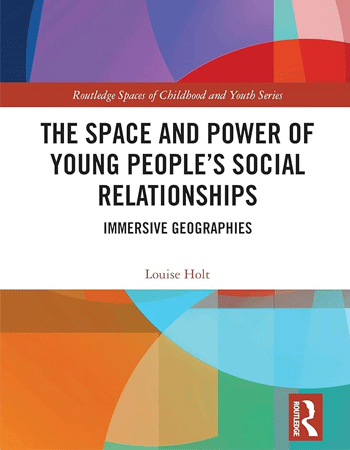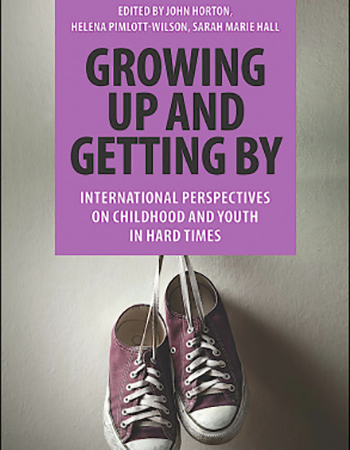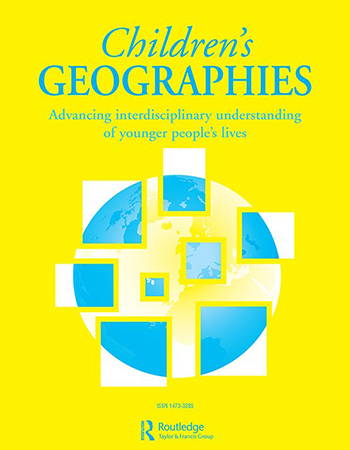Children, Youth and Families
At the forefront of establishing children’s geographies, our research explores formal and informal spaces of education and childhood experiences.
In recent years staff have held key international leadership positions including Chair of the RGS-IBG Children, Youth and Families Research Group and Editor-in-Chief of Children’s Geographies. Our work is currently challenging the liberal founding conceptions of children’s geographies via post-structuralist feminist critique, pioneering a politically-progressive conceptual framework.

The Space and Power of Young People's Social Relationships: Immersive Geographies
Louise Holt’s The Space and Power of Young People's Social Relationships: Immersive Geographies (2024, Routledge) examines the power of young people’s social relationships in schools to transform, or more often, to continue, differences that pervade societies. This new book draws on Louise’s extensive qualitative research with young people and makes interdisciplinary contributions to debates on power, difference, agency, friendship, bodies and subjectivity.

Digital Childhoods
Sarah Mills serves on the Department of Culture, Media and Sport’s national ‘College of Experts’, advising UK Government on young people, gaming and gambling. The role draws on her latest collaborative ESRC research that examines children and young people’s experiences and understandings of gambling-style systems in digital games, developing current geographical debates on children’s digital geographies and popular culture.

International Perspectives on Childhood and Youth in Hard Times
Co-edited by Helena Pimlott-Wilson this new book looks at the impact of neoliberalism, austerity and global economic crisis on children and young people. This latest book is the follow-up to Austerity Across Europe - Lived Experiences of Economic Crises.

Tutored Childhoods: Parenting Cultures, Youth Transition and Social Mobility
Combining insights from Geography, Sociology and Education, this Leverhulme Trust funded research into private tuition is examining: (i) sociospatially differentiated parenting cultures that drive demand and sway social mobility; (ii) tuition’s implications for contemporary childhood and family life; and (iii) young people’s educational strategies and transitions to adulthood.

Children and COVID-19
Louise Holt, Editor-in-Chief of Children’s Geographies, has co-edited an important global Viewpoints series ‘Children living in pandemic times’. Louise’s own contribution focuses on ‘Children’s geographies of COVID-19 in the UK’ as part of this timely collection which covers viewpoints from 11 countries.